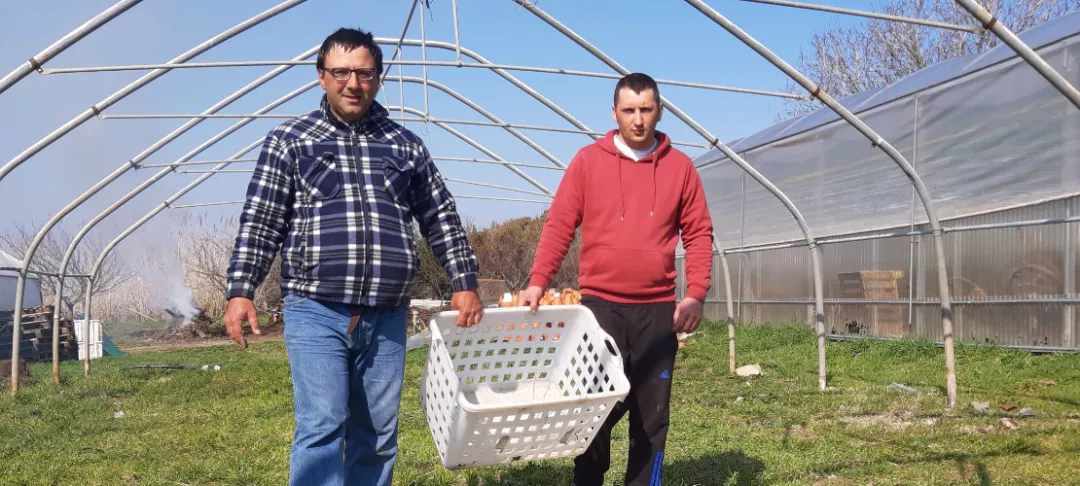Inspirational idea: A social farm ‘connecting people’ in Italy
- Innovation, knowledge exchange & EIP-AGRI
- Agricultural Productivity
- Fostering Knowledge & Innovation
- Social Inclusion
Agricoltura Capodarco, a social cooperative has three main goals: to provide employment to disadvantaged groups, to protect the environment and to promote sustainability.

Agricoltura Capodarco, a social cooperative located in the outskirts of Rome, employs people with disabilities and socially excluded people. 'Connecting people' is their main philosophy. The multifunctional cooperative runs two organic farms, two restaurants, produces wine and other products, has educational programmes and much more.
The agricultural cooperative was founded in 1978 and has a long history of bringing together and engaging people from different disadvantaged and vulnerable groups. It employs, for example, people with mental and physical disabilities, psychiatric patients, former addicts, former prisoners, people affected by depression, immigrants and asylum seekers. Salvatore Stingo, President of Agricoltura Capodarco, explains: “At the centre of the cooperative is the individual and his/her emancipation through work.” The cooperative combines social inclusion and professional integration through agriculture.
Agricoltura Capodarco has three main goals: “Providing employment, protecting the environment and promoting sustainability. All these issues are united in the work we do every day through social, multifunctional and circular agriculture,” explains Salvatore. The cooperative wanted to create a community based on equity, social justice and cohesion and has, at its core, the promotion of responsible consumption and the enhancement of the territory. Salvatore says: “Agricoltura Capodarco employs about forty people. In addition to this, there are around sixty young people involved in the farm as part of our various projects and initiatives.”
They take a ‘multifunctional’ approach, the production is highly diversified and, in each sector of activity, there is room for the inclusion of different skills. Salvatore goes on to say: “We are producers of oil, wine, honey, eggs and vegetables. We carry out transformation of our products on-site. We sell at markets. We have two restaurants, which use many of our products. In addition, we have specific social agriculture activities.” The employees work either on the land growing fruit and vegetables, in one of the restaurants, bottling wine, on the market stall and more. Feedback from the employees shows that they appreciate the feeling of being part of a community in which everyone contributes according to their abilities.
The cooperative employs many trainers and support workers engaged in occupational therapeutic activities, rehabilitation, education, training and supporting insertion into the world of work. The cooperative is also involved in many social projects such as a ‘shelter laboratory’ project where fifteen people with learning disabilities or psychiatric disorders work on the farm from Monday to Friday.
In terms of funding, the cooperative receives income from direct selling, public funding and multifunctional activities (events, etc.). Public funds stem from multiple entities including research and development and agricultural, social and health sectors. It also receives some funding from foundations and charities.
Despite their significant work with the local community, on a broader level the cooperative still observes a lack of awareness about social farming. The cooperative believes that the benefits of social farming for all parties involved needs to be further promoted, including in terms of a legal framework and improved training for both farmers and health workers. Salvatore concludes: “In today’s context, interacting with each other through social agriculture is an excellent opportunity and I believe that the future will be increasingly rich because of it.”
Project information
- Ilaria Signoriello - i.signoriello@libero.it